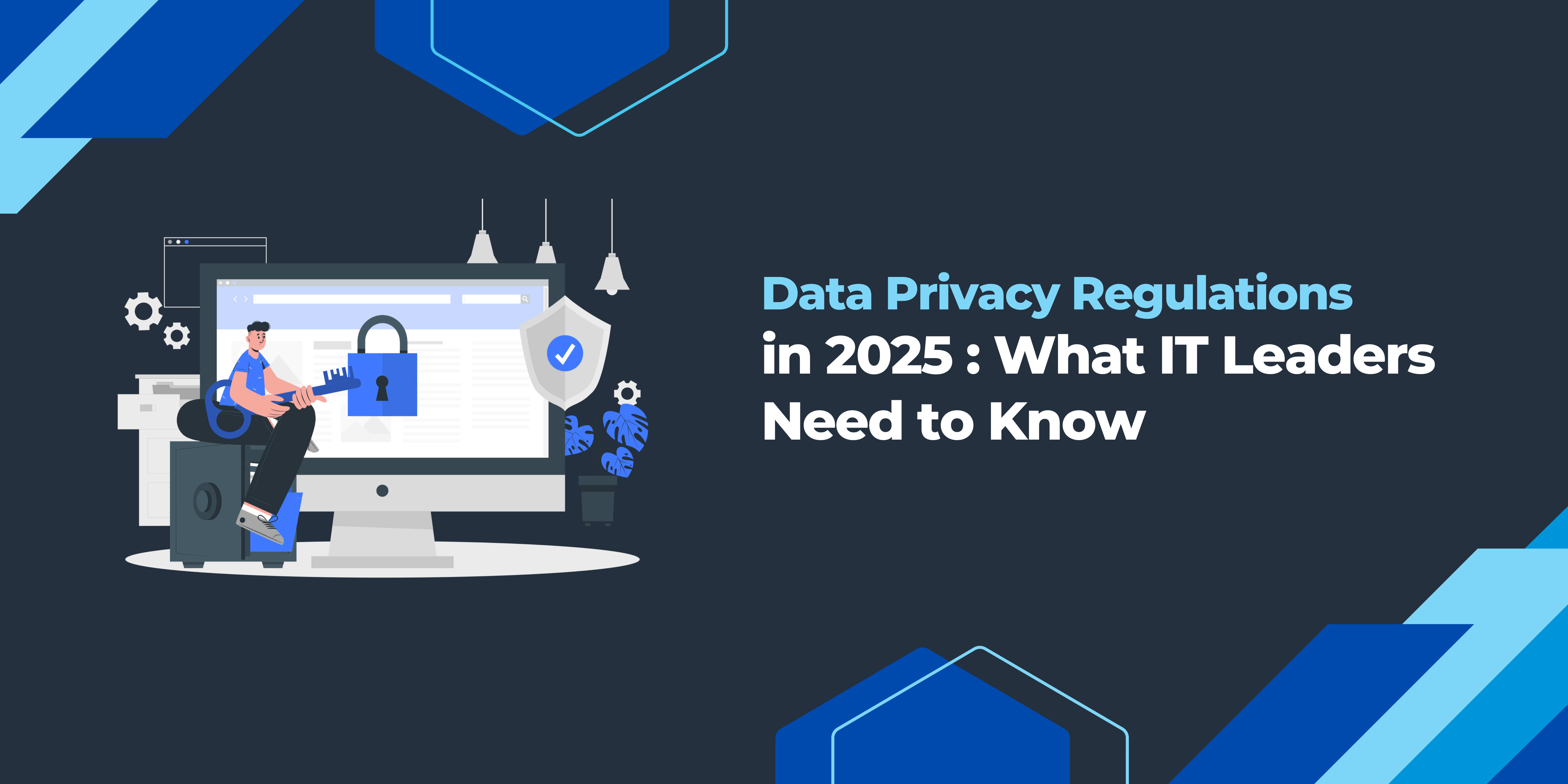As we head into 2025, the landscape of data privacy regulations is becoming more complex and rigorous. With new laws and updates to existing frameworks, IT leaders must stay informed to protect their organisations from legal, financial, and reputation risks. In this blog, we’ll explore key data privacy regulations in 2025, how they impact businesses, and what IT leaders need to do to ensure compliance.
The Global Evolution of Privacy Laws
2025 is seeing the global expansion of privacy regulations, with more countries adopting or enhancing their own laws to safeguard personal data. The European Union’s GDPR (General Data Protection Regulation) continues to set the standard for stringent data privacy rules. However, new regulations like China’s PIPL (Personal Information Protection Law) and Brazil’s LGPD (Lei Geral de Proteção de Dados) are also gaining traction.
These laws emphasise the importance of user consent, data localisation, and transparency in data processing, with steep penalties for non-compliance. IT leaders must be prepared to navigate multiple regulatory environments, each with its own nuances.
The Rise of Data Sovereignty
With privacy regulations expanding, data sovereignty—the concept that data is subject to the laws of the country where it is collected—has gained prominence. Countries are becoming stricter about where data can be stored and how it can be transferred across borders. In 2025, many regions are enacting policies that require sensitive data to remain within their geographic boundaries.
IT leaders need to evaluate their cloud and storage providers carefully, ensuring that data residency requirements are met. Partnering with local or region-specific data centres may become necessary to stay compliant.
AI and Automated Data Processing
The rapid growth of artificial intelligence (AI) has led to new concerns over automated data processing. Regulators are increasingly focusing on the ethical use of AI, particularly in handling personal data. In 2025, laws are being crafted to mandate that AI systems processing sensitive information are auditable, transparent, and fair.
To comply, IT teams should prioritise building explainable AI models and conducting regular audits of their AI systems. Implementing safeguards to prevent bias and data misuse will be critical.
Data Protection Officer (DPO) – A Strategic Role
With the growing complexity of privacy regulations, the role of the Data Protection Officer (DPO) has evolved from a compliance-focused position to a strategic role. In 2025, DPOs are tasked with aligning data privacy strategies with business goals, ensuring that privacy frameworks not only protect users but also enable innovation.
IT leaders should collaborate closely with their DPOs, ensuring they have the tools and authority needed to implement robust data governance policies. DPOs will play a critical role in managing risks, conducting data impact assessments, and liaising with regulatory bodies.
Employee Awareness and Training
One of the biggest threats to data privacy is human error. As privacy regulations evolve in 2025, businesses must invest in continuous employee training to build awareness of privacy best practices. IT leaders should ensure that all employees—especially those handling sensitive data—are well-versed in the latest data protection requirements.
Regular training sessions, updates on emerging threats, and guidelines for secure data handling will go a long way in preventing accidental breaches and ensuring compliance.
The Future of Privacy Tech
In response to these evolving regulations, privacy-enhancing technologies (PETs) are gaining prominence in 2025. Solutions like data anonymization, encryption, and decentralised identity systems are becoming critical tools for businesses looking to protect user data while maintaining compliance.
IT leaders should explore PETs as a way to bolster their data protection strategies and meet regulatory requirements. Investing in innovative privacy tools will also position businesses as trustworthy custodians of customer data, which is increasingly important in today’s data-driven world.
Conclusion
In 2025, IT leaders must take a proactive approach to data privacy. With regulations becoming more comprehensive and enforcement stricter, the stakes are higher than ever. By staying ahead of privacy laws, investing in privacy technologies, and fostering a culture of data protection, IT leaders can ensure that their organisations remain compliant and resilient in the face of evolving privacy challenges.
As data privacy continues to shape the digital landscape, those who prioritise it will not only avoid penalties but also gain the trust and loyalty of their customers.

